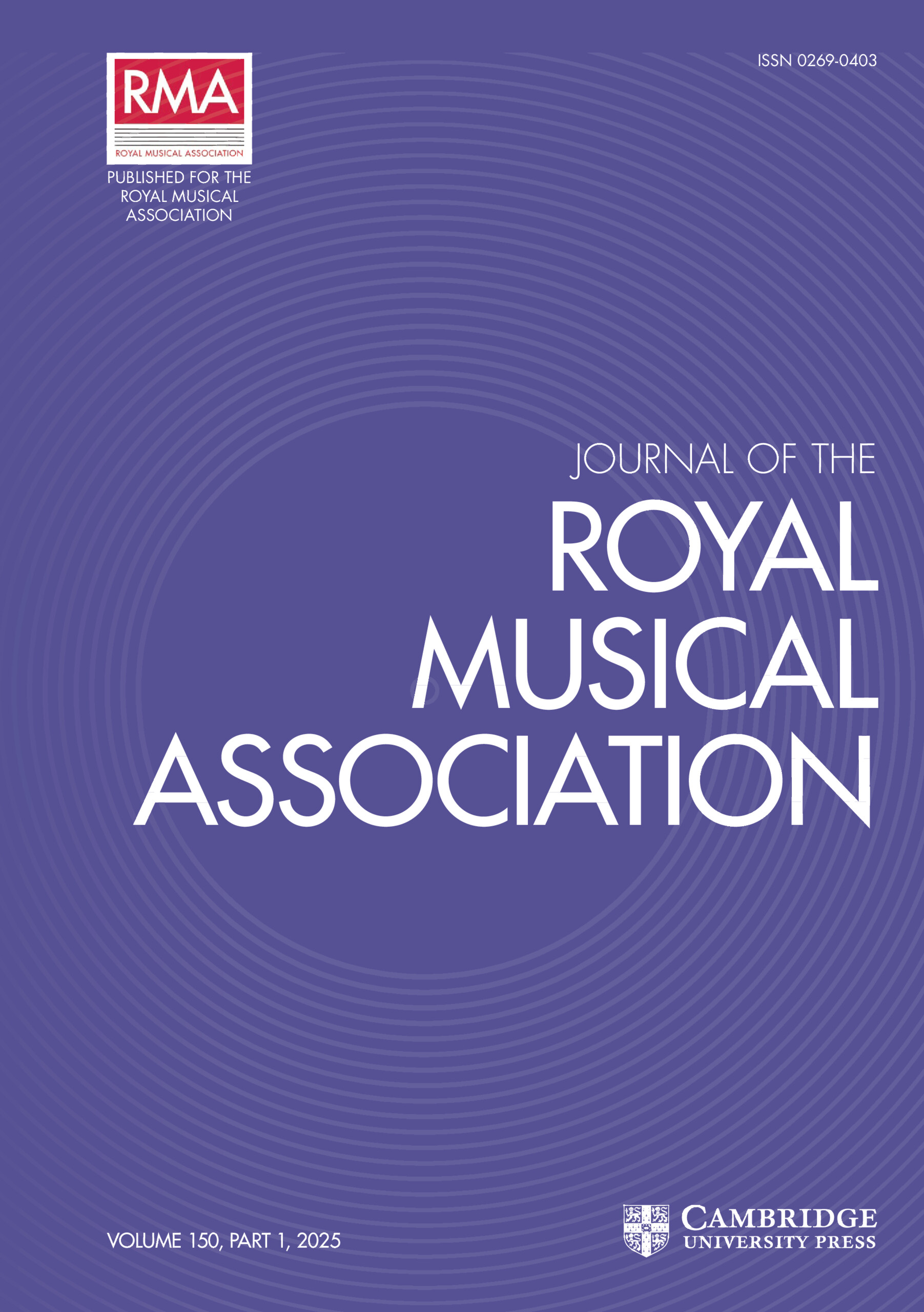Article contents
Listening, Ancient and Modern
Published online by Cambridge University Press: 01 January 2020
Abstract
The purpose of this paper is to describe some aspects of the agenda of listening in the Western tradition. Ancient and modern versions of some of the myths of listening (Orpheus, the Sirens) are compared to illustrate what might be at stake in the activity of listening. A basic contrast is drawn between ancient rhetorical ideas of the power of music to affect the listener and the demand of instrumental music, from the late eighteenth century on, that we understand what the music wants of us. The paper continues with a discussion of some ancient ideas about philosophical listening, which precludes talking and is directed both inwards and outwards, and it ends with some suggestions about themes that a history of listening might pursue.
- Type
- Research Article
- Information
- Journal of the Royal Musical Association , Volume 135 , Issue S1: Listening: Interdisciplinary Perspectives , 2010 , pp. 25 - 37
- Copyright
- Copyright © The Royal Musical Association
References
1 Fredric Jameson, Signatures of the Visible (New York and London, 1990), 1.
2 Roland Barthes, ‘Listening’, The Responsibility of Forms: Critical Essays on Music, Art and Representation (New York, 1985), 245–60 (p. 259).
3 James H. Johnson, Listening in Paris: A Cultural History (Berkeley, CA, 1995).
4 Tom Gunning, ‘The Cinema of Attraction(s)’, Wide Angle, 8 (1986), 63–70.
6 The Works in Prose and Verse of Charles and Mary Lamb, ed. Thomas Hutchinson, 2 vols. (Oxford, 1924), i, 520–1.
5 Leo Tolstoy, The Kreutzer Sonata and Other Stories, trans. David McDuff (Harmondsworth, 1985), 97.
7 Blake Wilson, George Buelow and Peter Hoyt, ‘Rhetoric and Music’, The New Grove Dictionary of Music and Musicians, ed. Stanley Sadie (2nd edn, London, 2001), xxi, 260–75.
8 Bellamy Hosler, Changing Aesthetic Views of Instrumental Music in 18th Century Germany (Ann Arbor, MI, 1981), 204–9; Carl Dahlhaus, The Idea of Absolute Music (Chicago, IL, 1989), 78–87.
9 For ancient references to this story, see Martin West, Ancient Greek Music (Oxford, 1992), 31.
10 Versions can be found in Dio Chrysostom, Oration 1; Suda, s.v. ‘Timotheus’; and St Basil, To the Young Men, 8.7.8.
11 Translated by Howard Landman, <http://www.polyamory.org/~howard/Poetry/orpheus_index.html>.
13 Compare Apollonius, Argonautica, 901–2, for the Sirens’ forestalling of return and the ‘wasting’ that they cause.
12 See Erich Kaiser, ‘Odyssee-Szenen als Topoi’, Museum Helveticum, 21 (1964), 109–36.
14 Max Horkheimer and Theodor W. Adorno, Dialectic of Enlightenment: Philosophical Fragments, ed. Gunzelin Schmid Noerr, trans. Edmund Jephcott (Stanford, CA, 2002), 27.
15 Barthes, ‘Listening’, 257.
16 Barthes, ‘Listening’, 257.
17 Plutarch, De Audiendo: A Text and Commentary, ed. Brian Hillyard (New York, 1981), on 39E8.
18 Translations of Plutarch are taken from Plutarch's Moralia, trans. Frank Babbitt et al., 16 vols. (London, etc., 1927–2004), i.
19 Stephen Greenblatt, Shakespearean Negotiations: The Circulation of Social Energy in Renaissance England (Oxford, 1988), 1.
- 2
- Cited by




